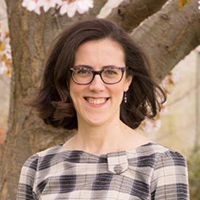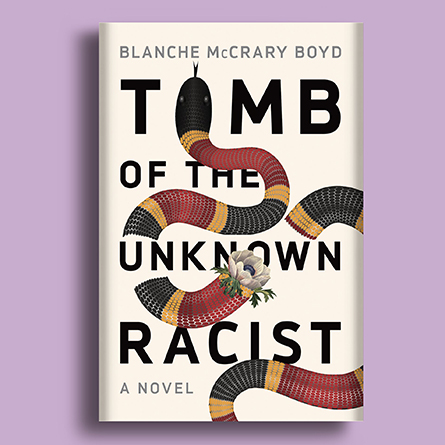
Blanche Boyd pens new novel
The third and final installment of a trilogy brings a surprising and satisfying conclusion to a decades-long story.
Nearly three decades ago, readers were introduced to Ellen Burns, the central character in what would ultimately become a trilogy of novels written by Blanche Boyd, the Roman and Tatiana Weller Professor of English. Now, the third and final installment, Tomb of the Unknown Racist, is bringing a surprising and satisfying conclusion to that story.
Boyd, an award-winning author who also serves as Conn’s writer-in-residence, used the first two books as vehicles to explore issues relating to southern culture, racial discrimination and the sexual revolution of the 1960s and ’70s through Ellen’s narration. In the new novel, Boyd shows the consequences of Ellen’s turbulent past in political activism and adds a new mysterious twist to her family story. The result is moving and wildly original, and despite being a work of fiction, also offers a chillingly realistic portrayal of family dysfunction that spans several tumultuous eras of American history.
After spending 20 years away from Ellen’s world, the author admits she approached the final book with some initial trepidation.
“It had been so long, I wasn’t entirely sure I could get back into it,” Boyd said. “It’s like a musician who takes a lot of time off and has to ease back into things by playing basic scales.”
Time has passed for Ellen, too. Tomb picks up her story in 1999; after a long struggle with substance abuse, she’s now sober and caring for her disabled mother in South Carolina. After hearing some news that her white supremacist brother, believed to have died a decade earlier, may actually still be alive, Ellen joins forces with her niece in an effort to track him down. Along the way, she gains a front-row seat to the growing racial strife enveloping the country, and uncovers some dark secrets about her family.
While Boyd believes the trilogy is more powerful when read in order, she intentionally wrote each book in a way that allows them to stand on their own.
“It was technically fascinating to make each book work independently, and it’s something that I had first become interested in trying back in graduate school,” Boyd said. “But for my first two novels I hadn’t yet found my voice or my footing.”
Boyd said she came into her own as a writer while working at the Village Voice in New York during the 1980s, where she wrote pieces of “autobiographical journalism” that often revisited her experiences growing up in South Carolina and her exposure to structural racism. Today, she teaches a course on narrative nonfiction storytelling that incorporates much of what she learned from that stage of her career.
Like most writers, Boyd is also informed by her personal experiences. She, like Ellen, is a recovering addict, and helps run two New London sober houses for women in properties she’s owned for years. Even after 36 years of sobriety, Boyd’s past struggles help lend a level of realism to the trilogy. But despite the fact that she identifies with many aspects of Ellen’s character, the books certainly aren’t autobiographical.
“I’m more like Ellen Burns than anybody else, but I’m not her,” Boyd explained. “I want her story to feel like it’s all true, but it’s not all true. I blend fact and fiction in my novels, and that’s part of what makes them feel authentic to my readers. Ellen’s arc spans several decades, but the racial issues this book addresses are as real and as important today as they ever were.”

